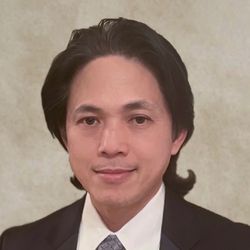SPECIALTY
Teeth Removal, Extraction, Oral Surgery
Our dentist may recommend tooth extraction for a number of reasons. One of the most common reasons is that you no longer have room for all of your teeth in your mouth. As an adult, your jaw has physically stopped growing, and this means that your teeth are no longer able to shift and change position. If they are unable to shift, crowding will occur. Crowding can affect your bite and lead to other dental problems as well.
Another reason for extractions is to prevent infection from spreading or worsening. If you have a tooth that is decayed or damaged, the dentist may suggest removal in order to prevent the infection from spreading to healthy teeth. Tooth decay can often lead to tooth loss if it spreads far enough, so removing the offending tooth is a great way to prevent this.
Teeth Removal Under Anesthesia
Our dentist will use local anesthesia to numb the areas that will receive treatment. Dental sedation may also be provided to help you remain comfortable and relaxed during your procedure. If a tooth is impacted below the gum line or covered by gum tissue, our dentist will need to expose the tooth and section it into small pieces to remove it.
This may involve gently moving the tooth with a dental tool called an elevator. Then, the tooth will be removed from the socket with forceps. Once your mouth has healed, you may need to replace the missing tooth to restore the function of your smile. In some cases, a dental implant may be used to restore a lost missing tooth.
Dental implants are small posts that will be placed in your jawbone to replace your tooth root and provide support for your tooth replacement. The restoration is then secured to the implant post. This creates a secure restoration that looks and feels natural. A dental implant can be used to replace a single lost tooth or a full set of teeth.
Extraction Aftercare
Our friendly staff will give you instructions for caring for your mouth after surgery. Avoiding hard foods for a few days will help you heal faster. Do not smoke cigarettes or use other tobacco products for at least three days after surgery, as smoking can delay healing.
You may experience mild pain after the procedure is over. You can manage any discomfort with over-the-counter medications. If you experience severe pain that lasts for more than two days, you should visit the dentist again.
For more information, contact our Alexandria dental office at (703) 823-2848 or 5130 Duke St, Suite 8, Alexandria, VA 22304, or our Manassas dental office at (703) 479-7654 or 8608 Centreville Rd, Manassas, VA 20110.
Implant-Supported Prosthetics Repair
Occlusal Orthotic Device for TMJ
Night Guards
Space Maintenance
Teeth Grinding Treatment
Thumb sucking treatment
Gap Between Teeth
Crooked Teeth Alignment
Traditional Braces (Wire Braces)
Clear Aligners (Invisible Braces)
Teeth Bleaching & Whitening
Veneers
Implant-Supported Prosthetics for Crown, Bridge, Denture
Implant Placement
Denture Placement
Bridge Placement
Crown Placement
Prosthodontics
Toothache, Bleeding & Swollen Gums, Broken Tooth
Emergency Dental Care
Oral Hygiene Instructions Flossing, Brushing
Teeth Cleaning Prophylaxis
Fluoride & Varnish Treatment
Routine Dental Check-Up Evaluation
Preventive Dental Care
Tooth Sensitive to Hot, Cold, Sweet, Sour
Periodontal Maintenance
Deep Cleaning, Periodontal Scaling and Root Planing
Therapeutic Pulpotomy
Filling of Cavities, Caries, and Decayed Teeth
Endodontic Root Canal Therapy
Filling of Broken, Cracked, Chipped Teeth
Basic Restorative
Cleaning
Emergency Services
Implants
General Dentistry
Cosmetic Dentistry
Orthodontics
Reviews
5130 Duke St, Suite 8, Alexandria, VA 22304
Phone: (703) 823-2848
- MON - WED9:00 am - 5:00 pm
- THU9:00 am - 5:30 pm
- FRI9:00 am - 5:00 pm
- SAT7:00 am - 1:00 pm
- SUNClosed
8608 Centreville Rd, Manassas, VA 20110
Phone: (703) 479-7654
- MON9:00 am - 5:00 pm
- TUE10:00 am - 6:00 pm
- WED - FRI9:00 am - 5:00 pm
- SAT7:00 am - 1:00 pm
- SUNClosed



